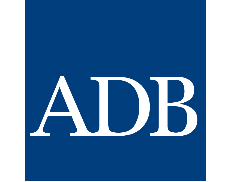Share
Print

Date Published: 10-Nov-2023
Deadline of Submitting EOI: 01-Dec-2023 04:00 PM Manila local time
Consultant Type: Firm
Selection Method: Simplified Consultants' Qualifications Selection (SCQS)
Selection Title: ARM: Health Facility Masterplan
Engagement Period: 6MONTH
Consulting Services Budget: USD 200,000
Source: International
Technical Proposal: Single-Stage Proposal (SSP)
Approval Number: 9768
Approval Date: 18-Jul-2019
Country of assignment: Armenia
Country of eligibility for national consultants: Same as country of assignment
Primary Expertise: health services
TOR Keywords: health services, master plan
Objective and Purpose of the Assignment
ADB’s Knowledge and Support Technical Assistance (TA) 9768 - Supporting Improved Health Outcomes in Asia and the Pacific – is intended to expand access to quality health services in ADB’s Developing Member Countries through the provision of best practices and innovative technologies. It provides resources to support the development of Armenia’s Health Facility Masterplan.
The Government of Armenia has requested the Asian Development Bank (ADB) to assist in the preparation of a results-based loan (RBL) program to support implementation of health sector reforms that focus on improving the quality of healthcare. The proposed RBL program is aligned with the following impact: personal and public health maintained and improved, by providing accessible, modern and high-quality health care services. The outcome of the RBL program will be improved quality of health care and patient experience, measured by (i) amenable deaths for chronic conditions reduced; (ii) in-hospital mortality for acute myocardial infarction reduced; and (iii) hospitalization rate for ambulatory care sensitive conditions reduced. The program will have the following outputs: (i) availability and readiness of health facilities to provide quality services improved; (ii) capacity and organization for quality of care strengthened; and (iii) continuous quality improvement and monitoring institutionalized. The government’s health sector reform priorities are laid out in the Government Program 2021–2026, the Health Sector Strategy 2023–2026 and the Concept Note for Universal Health Insurance (UHI). The Ministry of Health (MOH) endorsed related documents on specific areas which include an eHealth Action Plan (February 2021), a Quality of Care Strategy and Action Plan 2022–2026 (April 2022), and the Primary Health Care (PHC) Action Plan (July 2022). With the roll out of UHI in Armenia, the affordability of healthcare will improve with commensurate increases in the demand and utilization of health services expected. At the same time, UHI is an important lever to improve the consistency and quality of care among providers. Health care quality is high on the Government of Armenia’s reform agenda: in April 2022, the MOH endorsed a Quality of Care Strategy and Action Plan 2022– 2026. Improving the quality of care, however, will also require support for the structural elements of quality (infrastructure, equipment, human resources), quality of care processes and monitoring and evaluation. Low quality of care is a major cause of preventable deaths in Armenia. A 2018 study showed that 53% of avoidable mortality resulted from poor health care. Surveys carried out in 2019 attributed this to weaknesses in multiple areas: (i) inadequate leadership including the absence of an overall governance structure; (ii) a lack of knowledge and skills on quality management among facility managers and health workers; (iii) poor use of the existing eHealth system and analysis of available data for quality improvement; and (iv) limited patient involvement in their own care. Healthcare service utilization remains a concern, especially among the poor, and is primarily related to the quality and availability of services. While PHC visits have increased since the early 2000s to an average of 4.1 per person visits in 2017, this level of health utilization is well below the average for the World Health Organization (WHO) European region at 7.6 visits per person (in 2014). A recent assessment found that service unavailability followed by quality of care concerns were the main reasons people did not use PHC services. In a recent survey, 63% of poor and 62% of non-poor cited self-treatment as the reason they did not visit PHC facilities for their last illness alluding to lack of trust in health facilities. Health infrastructure is outdated and insufficiently equipped to deliver the high-quality of health services expected under the new MOH action plans and strategies. There is a shortfall of basic and advanced medical equipment for prevention, diagnosis, and treatment at the PHC level leading to inappropriate use of secondary and tertiary care services. Behind this, the licensing system of health facilities is outdated and not applied on a routine basis. Much of the health infrastructure does not comply with modern energy efficiency and other standards. New challenges arising from climate change, such as changing disease burdens and extreme weather events, are anticipated to exacerbate the challenges in accessing health services. To realize MOH’s ambition to develop health services that can deliver on the current and future needs of the Armenia population, a Health Facility Masterplan is needed to improve infrastructure, equipment and service delivery.
ADB - Asian Development Bank - based in Manila, Philippines since 1960.
The Asian Development Bank aims for an Asia and Pacific free from poverty. ADB in partnership with member governments, independent specialists and other financial institutions is focused on delivering projects in developing member countries that create economic and development impact.
As a multilateral development finance institution, ADB provides: